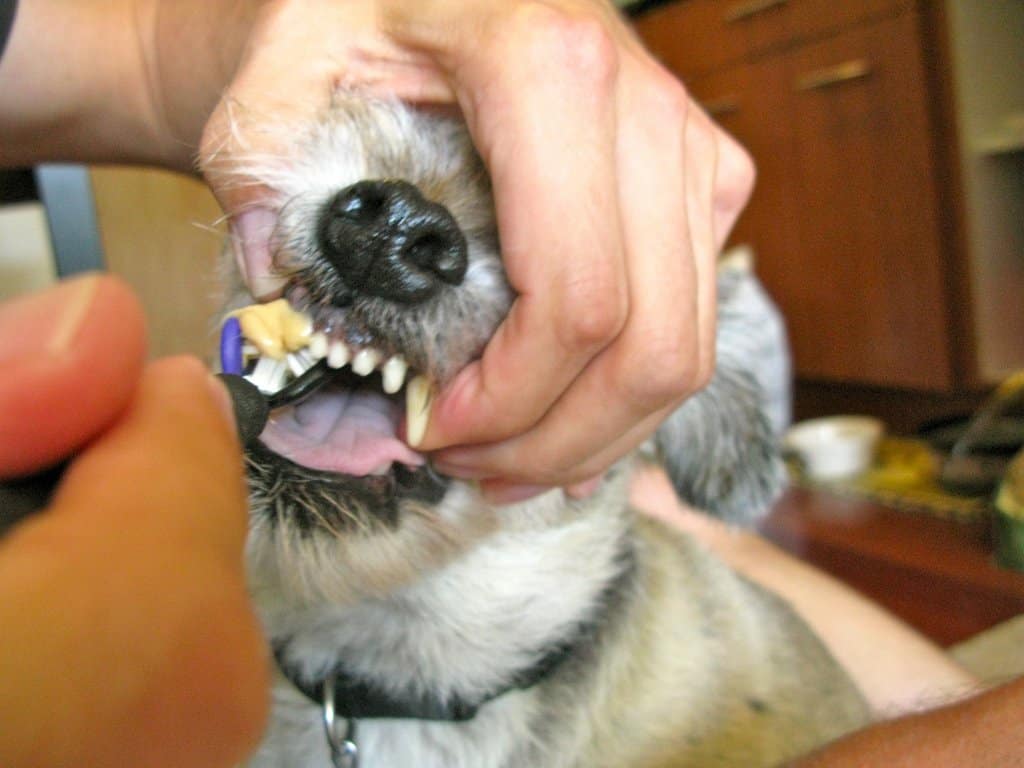National Pet Dental Health Month – February
February is celebrated as National Pet Dental Health Month to give an accent to the importance of dental health for our pets. It is sponsored by the American Veterinary Medical Association (AVMA) as a subtle reminder to keep an eye on Fido’s and Fluffy’s teeth.
While this reminder holiday is celebrated annually, it is recommended that teeth and gums be monitored closely and regularly.
Pets are part of the family, and like any other family member, we strive to keep them as healthy as possible. However, even the most conscious owners can easily overlook important things regarding their pet’s dental care.

According to the American Veterinary Dental Society (AVDS), after they reach the age of three, 80% of dogs and 70% of cats will manifest some form of dental disease. This can be easily prevented with regular checkups and visits to the veterinary clinic. Home monitoring is of great importance too. Checking the mouth of your pet at least once a week can be crucial for preventing dental disease.
Pet Dental Health Can Lead to Secondary Diseases
Poor dental health can lead to secondary diseases. Studies have shown that dental diseases can lead to heart, lungs and liver problems.
Many veterinarians believe that the source of feline dental problems is their modern diet. Their vicious teeth are specially designed to eat the prey whole, devouring bones, hair, and feathers that help keep their teeth clean. With eating kibble every day, tartar and plaque buildup is unavoidable.
Some of the most common dental diseases in cats are gingivitis, stomatitis, broken teeth, retained baby teeth (also in dogs), malocclusion (incorrect bite) and FORL (Feline Oral Resorptive Lesions).

How Often Should You Brush Your Pet’s teeth?
A pet’s teeth should be brushed at least once a week! At first, your dog or cat will not comply with this process because it is strange to them. But with positive reinforcement and treats afterward, they will learn that there is nothing scary about brushing their teeth 🙂

By not brushing your pet’s teeth, you allow a build-up of bacteria, food leftovers, and saliva to collect between the teeth and the gums, and to progress into a tartar buildup. With time, this can advance into a periodontal disease which erodes the gums and will result in bad breath, bleeding gums, infection, inflammation, and pain.
Animals have the same nerve supply in their mouths as us humans, but the difference is that they hide the pain much better. So, don’t be surprised if your fur baby is suffering from a periodontal disease but still eating. Eating is not always a sign that everything is ok.
The Most Common Symptoms of Dental Disease in Pets
- Red and swollen gums
- Brown or grey teeth
- Bad breath
- Bleeding gums
- Pawing the face or rubbing the mouth against objects
- Reluctance towards hard food or hard toys
Proper dental hygiene and regular veterinary check-ups can maximize the quality and quantity of your pet’s life. Always, when necessary, take your pet for professional dental cleanings. These cleanings include scaling and polishing the teeth and are done at your veterinarian under general anesthesia.

Always make sure to feed high-quality food and treats. Also make sure to incorporate healthy human foods, like fruits and vegetables. Just be sure that the ones you have in mind are safe for dogs or cats.
You can also use non-edible bones or chews to add to your at-home dental care. Dogs have a natural urge to chew so these toys can help with the natural scaling of tartar on the teeth. Just be careful of worn-out toys because they can be hazardous.
Celebrate this month by buying a specially designed toothbrush for your pet and a pet-friendly toothpaste. Brush their teeth and say goodbye to tartar and plaque!



